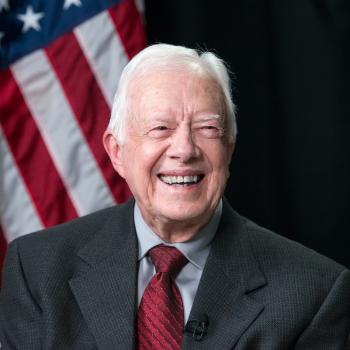The simplicity of children
Children are not privy to the complications and competing priorities of the adult world. While seeking to understand the complexity of our world and discerning how to live well in it as adults are vital, it is dangerous to walk too far down such a path without the accompanying wisdom of a child. It is often a child who, with incredible simplicity, will point to the most important issue in front of us, an issue that we may have analyzed so deeply we can no longer see clearly.
A child's capacity to forgive
Children have to forgive far more frequently than we do. This is because children are the ones in their relationships with adults who have less power, and they are constantly subject to the orders, priorities, frustrations, misunderstandings, criticisms, and mistakes of adults. Their resilient nature often enables them to love and forgive in a way that adults cannot or will not.
Having explored why children's spirituality is a vital model for adults I will now look at some stories of children's expressions of spirituality from the ministries I'm involved in. I believe that this is important because merely to abstract principles about children from the children themselves is to behave in a very adult way and to be in danger of entirely missing Jesus' point altogether! Children, however, cannot be distilled down to abstract principles.
Having done a treasure hunt for hot cross buns the preschoolers all sat and listened to an adult tell the Easter story. Whilst she spoke about the last supper one of the kids asked her to un-wrap his hot cross bun. She unwrapped it, broke off a bit of the hot cross bun, and gave it to the child saying 'and Jesus gave them a piece of the bread and said remember me every time you eat this' and then gave the rest of the hot cross bun back. Then, before she could move on with the story, another five or six kids in turn spontaneously handed over their hot cross buns wanting the leader to break off a piece of their bun and hand it to them with Jesus' words.
:::page break:::
A group of 5-11 year olds gathered round as a teenager told the Easter story using props. Children were given characters in the story to hold and move about with the telling of the story. One boy made sure every time we moved about the room that the smallest child in the group had a seat where he could see the story. Another child patiently explained to a boy with ADHD when he was getting in the way of others without snapping at him. Another boy refused to make the model of the disciple he held fall asleep and leave Jesus alone in the Garden of Gethsemane, and then when it came to Pilate condemning Jesus to death he turned away and said 'I can't look'. One child made a joke as the storyteller was placing pins through Jesus' hands 'nailing' him to the cross. Another child stood up in response and told him 'That's not funny. This really happened. And don't forget that Jesus is with us now while we're telling this story.'
At a community meal for families one child got up and announced to the assembled gathering that she had just met her birth father for the first time since she was three. She explained that it had been really wonderful and very emotional for her. This modelling to of the community of faith as a place to share vulnerability and celebration was moving and challenging.
We were making chocolates to hand out the men of the congregation on Father's Day. One of the boys asked, 'are we going to make enough to take some of these to the men's night shelter too?'
We were talking about how God speaks. I put on a loud deep voice and said 'God doesn't necessarily speak to us in a loud boom-y voice'. One child responded 'Miranda, God isn't a man so God wouldn't always speak in a man's voice anyway'.
I asked the kids of my afterschool program this week what adults need to be reminded about when it comes to following God and living well. Their responses included:
Adults say "no" too much. They forget to celebrate birthdays and other things. Adults let arguments and splitting up become more important that their children. They eat too much. Adults often tell you to go away when what you have to say is really important ... and then they're annoyed later on that you didn't tell them! Adults sleep in and stop us getting to church.
Schleiermacher believed that childhood and adulthood were best understood not as successive phases of human development but as distinct spiritual perspectives that could co-exist in any human being at the same time. (See Dawn Devries' Toward a Theology of Childhood.) I hope so, and I hope that as I continue to grow up, I also continue to grow down so that I don't miss out on all God has for me.




